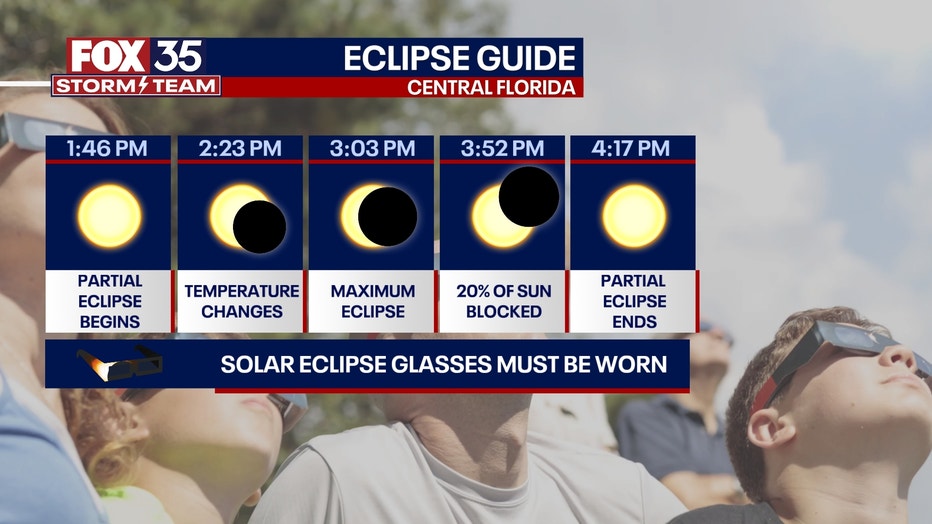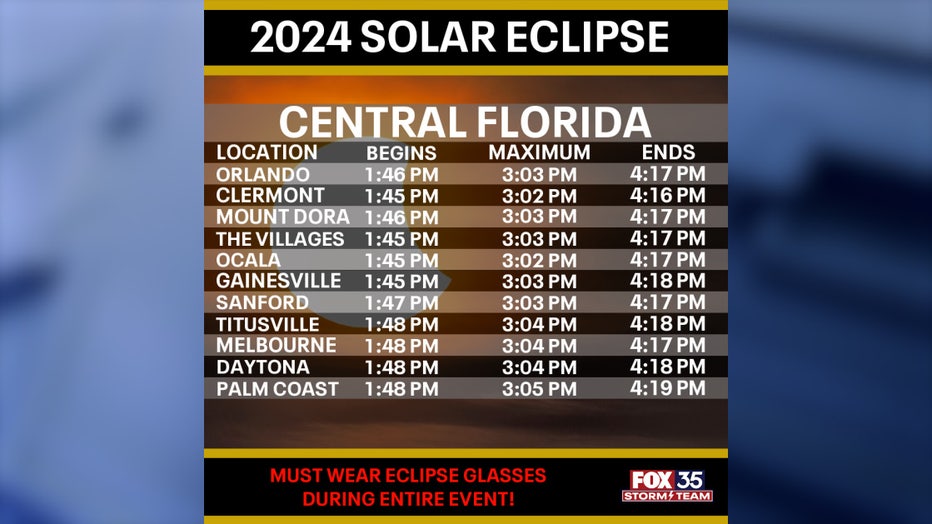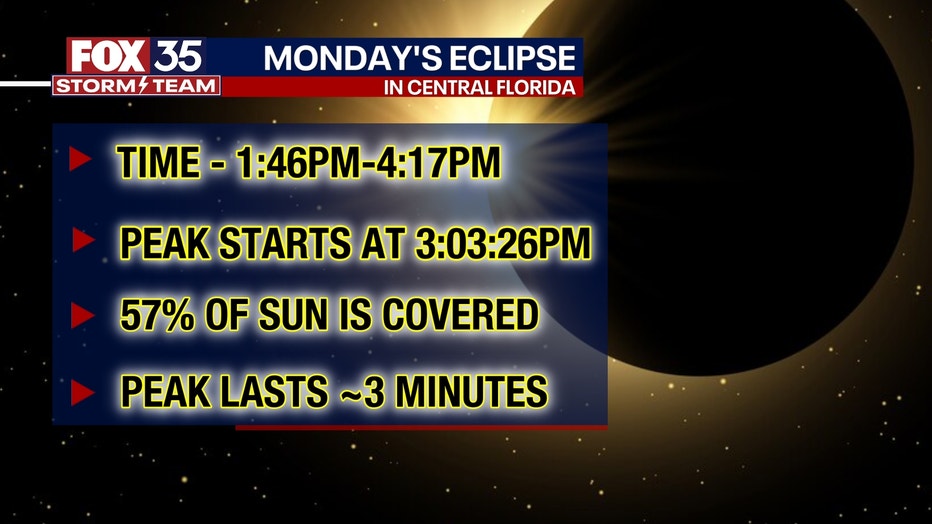2024 Eclipse in Florida: Peak times, Central Florida maps, path of totality
FOX 35 Total Eclipse: Live coverage of total solar eclipse
As people across the country look up to the skies – with special glasses of course – to view the total solar eclipse, Florida will be able to do the same. Instead of a total solar eclipse, Central Florida will be able to see a partial solar eclipse.
Here's everything you need to know: peak times in Central Florida to view the partial solar eclipse, the path of totality track, and where to see the eclipse.
How much of the solar eclipse can I see in Florida?
Depending on where you live in Florida, it will determine how much of the total solar eclipse you'll be able to see. Here in Central Florida and the Orlando metro, we're expecting to see about 50-60% of totality – which means we'll see what appears to be a "crescent moon" in front of the sun.
Those close to Texas and along the Midwest will be able to see complete totality.
2024 solar eclipse path of totality: Where to see the total solar eclipse
Large cities in the path of totality include:
- Austin, Texas
- Dallas, Texas
- Little Rock, Arkansas
- Carbondale, Illinois
- Indianapolis, Indiana
- Cleveland, Ohio
- Buffalo, New York
- Plattsburgh, New York
- Presque Isle, Maine
What happens during a partial eclipse?

Peak times to see the partial solar eclipse in Central Florida
Monday's eclipse will start at 1:46 p.m. and end at 4:17 p.m. The eclipse peak will be at 3:03 p.m., and 57% of the sun will be covered. In Florida, the peak will last about three minutes.
Clermont: 1:45 p.m. - 4:16 p.m.
Mount Dora: 1:46 p.m. - 4:17 p.m.
The Villages: 1:45 p.m. - 4:17 p.m.
Ocala: 1:45 p.m. - 4:17 p.m.
Gainesville: 1:45 p.m. - 4:18 p.m.
Sanford: 1:47 p.m. - 4:18 p.m.
Titusville: 1:48 p.m. - 4:17 p.m.
Melbourne: 1:48 p.m. - 4:17 p.m.
Daytona: 1:48 p.m. - 4:18 p.m.
Palm Coast: 1:48 p.m. - 4:19 p.m.

Here's when you can expect to see the 2024 solar eclipse in Central Florida on April 8, 2024.
RELATED STORIES:
- Timeline: How long will solar eclipse last in Florida?
- Where to watch solar eclipse in Orlando, Central Florida
- What time will the 2024 eclipse happen in Florida?
When will the solar eclipse peak in Orlando, Florida?

Do I need to wear solar eclipse glasses?
It's not safe to look directly at the sun during a solar eclipse without proper eye protection.
The only time it’s safe to look directly at the sun is the brief period when the moon completely blocks the sun. Looking at the sun through a camera lens, binoculars, or any other type of lens without a special solar filter will also injure your eyes.
Glasses considered safe for eclipse-viewing will meet the ISO 12312-2 standard, so look for that label, but organizers of the Solar Eclipse Across America website say they’ve found some glasses that say they’re compliant, but they’re not.

